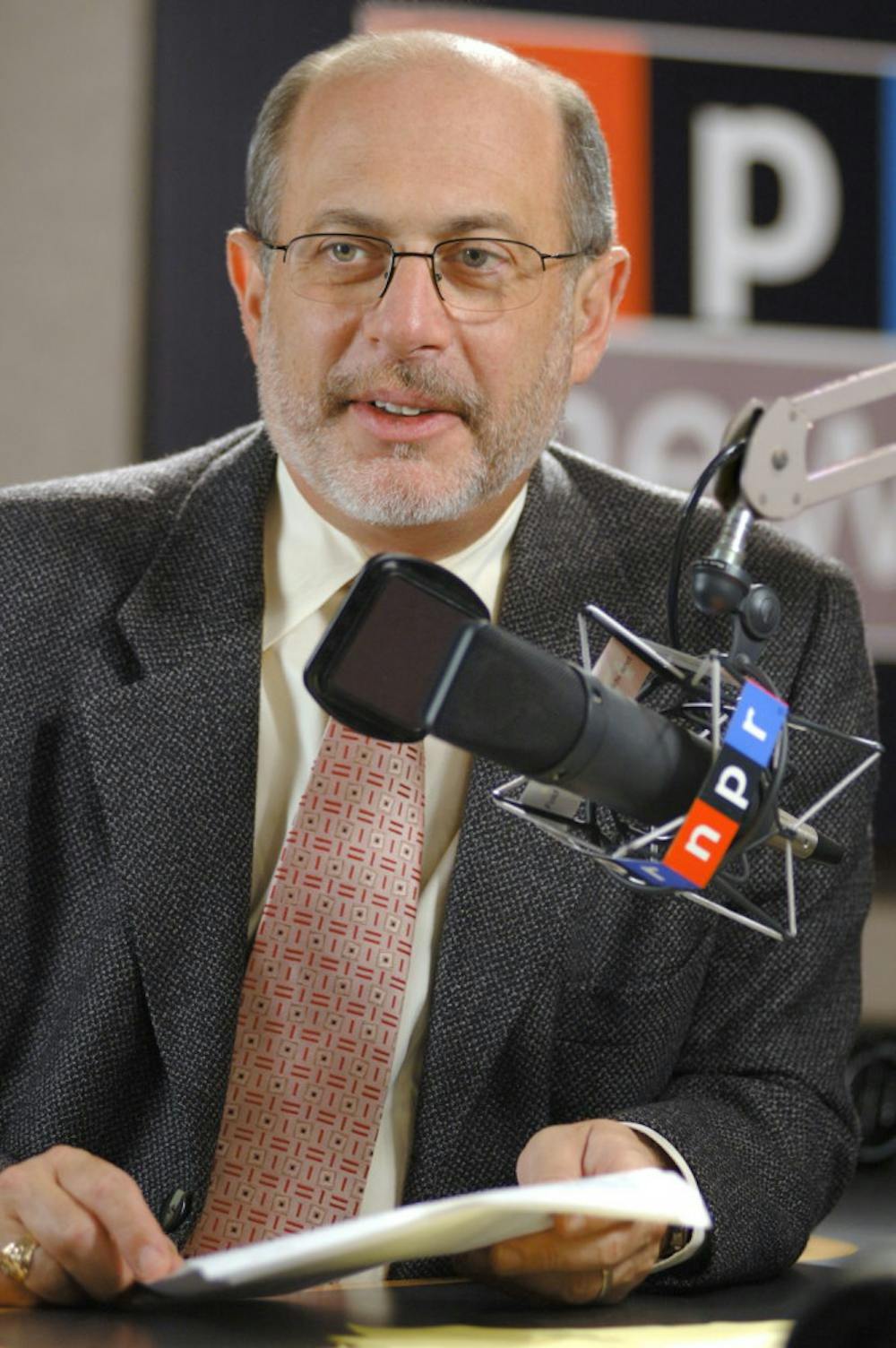On Wednesday Nov. 1, Robert Siegel of National Public Radio (NPR) graced the Wilson Hall stage to reflect on his legendary career in broadcast journalism and remark on changes in the field over the last forty years. Siegel’s first foray into the world of radio was in 1968 when he provided in-depth coverage of student protests at his own Columbia University on the school’s radio station, WKCR-FM. Siegel would graduate from Columbia later that same year. Upon completing his undergraduate education, Siegel attended the Columbia School of Journalism for one year and then went on to work for New York City’s WRVR Radio until NPR hired him as a newscaster in 1976. After a whirlwind seven years in which Siegel worked as newscaster, senior editor and director of the News and Information Department, Siegel became the host of “All Things Considered” in 1983. Over the next three decades, Siegel piloted the program from nonentity to giant, fostering the growth of “All Things Considered” into the massively popular drive-time news segment that it still is today.
However, more impressive than his illustrious career and numerous professional accomplishments is Siegel’s effect on people. Over 30 years, he inspired tens of millions of listeners to become more engaged in the world, uniting people of all ages and backgrounds with his warm voice and comforting presence that found a way to transcend one-dimensional airwaves.
At the start of his much-anticipated talk, Siegel took the stage in front of a packed Wilson Hall, where baby boomers and millennials alike waited for the first words to emanate in his iconic voice. Siegel touched on a handful of personal experiences that stayed with him through the years, a particularly powerful one involving his coverage of and subsequent relationship with a youth named Jeremy Armstrong, who at the age of 15 shot and killed his father’s roommate and drug dealer. Despite his young age, Armstrong was tried and convicted as an adult in Wisconsin in 1997 and served eight years in an adult prison for reckless homicide before gaining parole. Siegel, working to illuminate the effects of harsh juvenile justice policies at the time, interviewed Armstrong multiple times and followed his efforts to regain both his freedom and a sense of normalcy. Upon his release, Armstrong penned a heartfelt letter of thanks to Siegel for sticking by him, and Siegel’s description of Armstrong’s life as an ex-convict to the rapt capacity crowd in Wilson was eloquent, emotional and touching. Now, Armstrong is a successful, state-licensed middle school teacher and basketball coach.When Siegel was awarded the John Chancellor Award for Excellence in Journalism in 2010, Armstrong spoke on Siegel’s behalf at the award ceremony. Siegel confessed that this was a very proud moment for him, an example of how a career in journalism erases forgone conclusions and stereotypes that an individual may have when initially coming into a story.
Siegel then spoke about the effect of social media on journalism and the lack of professional etiquette from both the White House and purveyors of social media programs. Siegel criticized these social websites and applications for ignoring the intricate selection and editing process that traditional news outlets go through in order to present information accurately and in context. Applications such as Snapchat and Facebook have become common sources of news for millennials, and the information they present is vulnerable to increased subjectivity when it is presented in short, 10-second video clips instead of meticulously-researched articles. Siegel’s point becomes even more poignant in the context of the last election cycle and the proliferation of “fake news” through social media that may or may not have influenced voters in the 2016 presidential election.
Siegel ended his talk by taking a few questions from eager community members, one of whom asked for advice for an aspiring journalist.
“I wish I’d worried less,” said Siegel after a pause, then urging the crowd’s young and unemployed to pursue what they want with passion and enthusiasm.
In the words of guest Daniel Foley of the Vermont Humanities Council, Robert Siegel is “one of America’s most distinguished journalists.” In today’s politically divided society, Siegel’s lifelong, ardent devotion to the truth serves as a reassuring constant, a symbol of the importance and endurance of honest journalism. “All Things Considered” airs every weekday on your local NPR member station.




